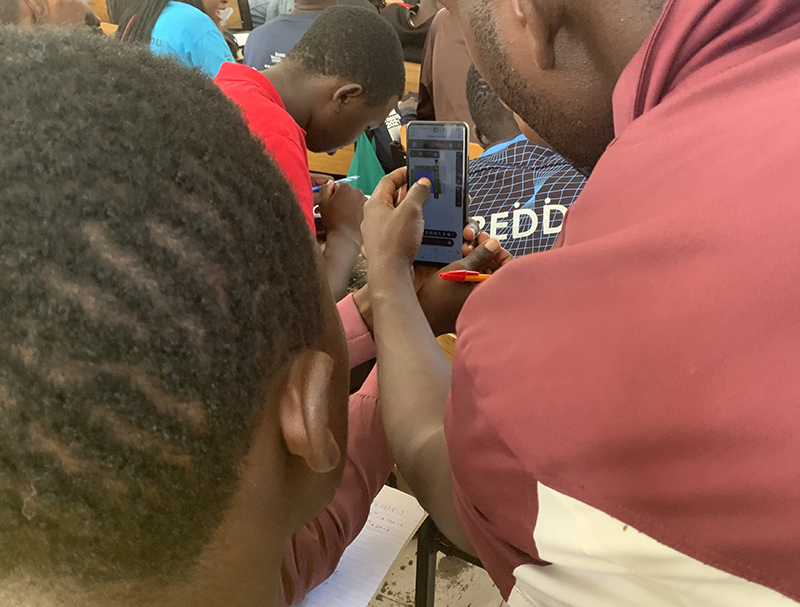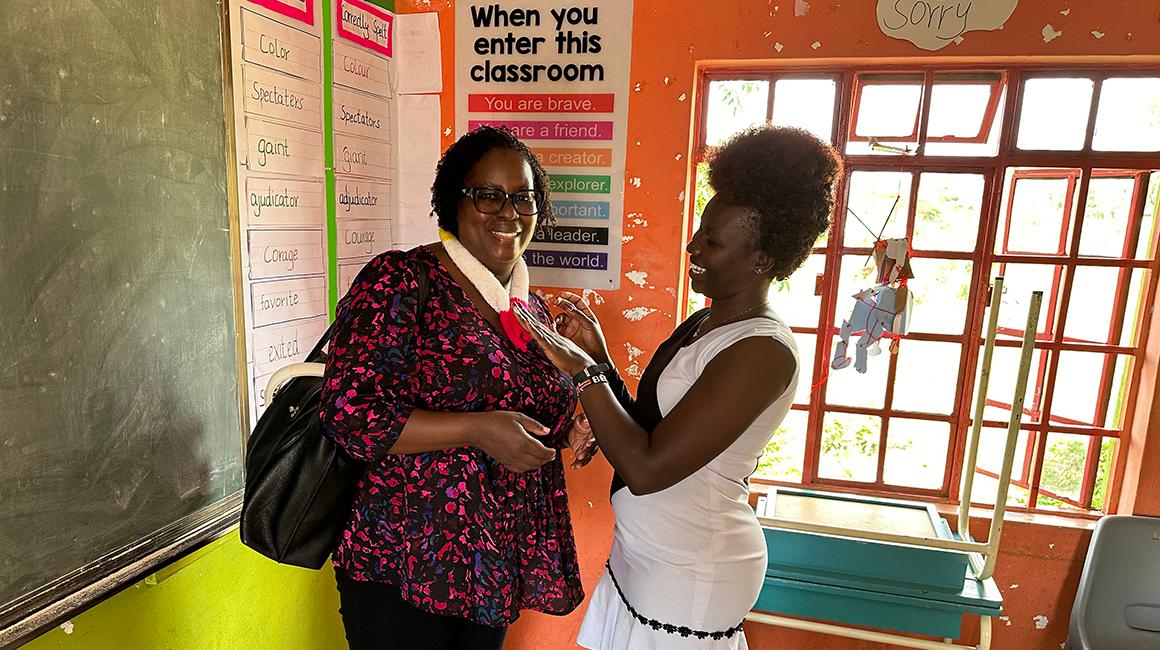Dr. Rachel Ayieko’s goal for her Carnegie African Diaspora Fellowship was simple. She wanted to help students learn, wherever they were and with whatever resources were available. She didn’t realize that in the process, she’d learn just as much from them.
The Carnegie African Diaspora Fellowship provides opportunities for scholars to lead
educational projects at African higher education institutions. Upon receiving her
fellowship award notification, Dr. Ayieko knew she wanted to serve a rural community
in her native Kenya where her help would have the greatest impact.
Jaramogi Oginga Odinga University of Science and Technology (JOOUST), a 12-year-old
university in Bondo, Kenya, seemed like a perfect fit. Students and the School of
Education at JOOUST were struggling with challenges related to technology and the
government’s new competency-based mathematics curriculum. Recognizing many similarities
between the new Kenyan curriculum and the way she prepares aspiring teachers at Duquesne’s
School of Education, she was excited to help.
“The first month I wanted to get a sense of how the schools are, because in the U.S.
we have all these resources and I couldn’t assume that what I wanted to do would work
in this context,” said Ayieko.
Learning the landscape
Working side-by-side with local communities, Ayieko took time to interview principals,
math teachers and students. She guest-lectured in classrooms, assisted with co-curriculum
development and visited the university library to study the available math education
books.
“They had almost nothing for mathematics education,” she said. “I shipped donated
books prior to leaving the United States, so I was excited that I had selected books
that were the most recent so they could see the latest research and how it has impacted
the way we prepare teachers.”
Technology also was a challenge. Ayieko took inventory of how many students owned
laptops, tablets or smartphones. While few had laptops or tablets, many had smartphones.
The challenge? Internet and electricity were unreliable.
Depending on students’ devices, phone plans or even where they sat in a particular
building, they could not access valuable online resources that Ayieko wanted to share.
To help mitigate these challenges, students were asked to make sure they had “bundles”
(data) on their phones.
Hopeful that bundles would get them through class, Ayieko was ready to teach. “I armed
myself with two mobile charges, my hotspot and a mobile Wi-Fi,” she said.
She hoped that having internet access from two plans would allow her to run the presentation
with no interruptions. But she quickly found that some students continued to struggle
accessing the online resources that formed the basis of the day’s discussion.
Driven by tenacity

Ayieko encouraged students to look beyond the surface and employ this same problem-solving
and flexibility in everyday life so they can be prepared for anything. “They were
excited to learn new technologies,” she said. “I told them if they’re ever in a cybercafe
or somewhere with internet, go and play around with it and see what it has to offer
you.”
Ayieko spent two-and-a-half months in Kenya before returning to the Bluff to share
her learnings with Duquesne students.
Kylie Poland, a student pursuing a bachelor’s degree in early childhood education
and master’s degree in special education, aspires to become a special education teacher
and eventually a special education director. Ayieko’s experiences abroad have provided
her with a greater sense of purpose.
“Dr. Ayieko presented her research findings about the resources available at the schools
in Africa compared to those in America. It highlighted the importance of being aware
of varying levels of resources and support that students may have and how this can
impact learning,” said Poland. “She mentioned how she had to constantly adapt her
lessons or instruction to best support the students. This insight will allow me to
adapt my teaching methods to better suit the needs of all my students.”
Learning together, building enduring connections
Ayieko was equally inspired by Duquesne students when she shared her experience with
them. “My students were giving me ideas on how the Kenyan schools could set up their
classrooms, including things like small projectors that can fit in a purse and white
bedsheets for screens,” she said. “They were even sending me texts with links on what
I could buy. I want to start a resource center that those teachers can access to help
them build their learning.”
The impact of Ayieko’s fellowship endures through her continued efforts to prepare
competent, compassionate future teachers.
“Faculty at Duquesne strive to ensure that we become well-rounded educators who make
a difference–hence the mantra ‘prepare here, impact anywhere,’” said Poland. “Dr.
Ayieko's time in Africa inspired me to become more culturally responsive in my teaching
approach and consider the diverse backgrounds and experiences of my future students.”
News Information


